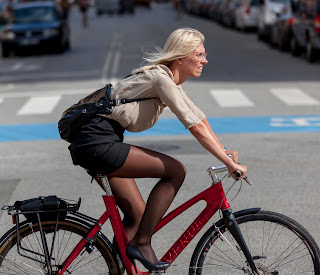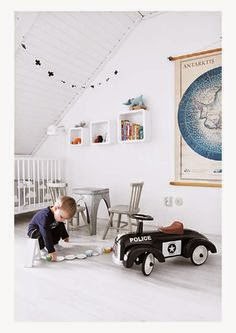(Attempting to) Learn Danish
It's November which means I have been in Denmark for seven months - and I'm only now starting Danish lessons. Many Scandinavians are surprised I have any intention to learn the language. Apparently only 20% of English speakers moving to Denmark ever learn Danish. The Danes are just so good at our language and so apologetic about their own. Well, I'm doing it but I have realistic goals. We're shooting for proficiency here people - not fluency. Realizing that this will probably lead to ridicule around the lunch table at work, I'd like to share some of my first impressions of the language.
First, for some context, Swedes and Norwegians almost sound like they’re singing when they speak, while Danish sounds very flat (kinda like the topography of Denmark). Swedes and Norwegians can understand the basic gist of Danish and universally comment that Danes sounds like they are speaking Norwegian or Swedish with a hot potato in their mouth.
There is a Scandinavian joke that Danes don't actually talk like that when they're alone but that they only do it to annoy Swedes and Norwegians...and dare I say expats trying to pronounce Danish for the first time.
The thing about Danish for an English-speaker is that a lot of our words have a common root, but while you begin to be able to decipher the written language a bit, the pronunciation bears no relation to the spelling.
Pronunciations you'll never believe
Et ugeblad, a magazine, is pronounced oo-blel. Yep, the g is silent and the last d is pronounced like an l.
Farver means colors and is pronounced fa-wa. Just pretend that the arv is a w and you're almost there.
There is a major square in Copenhagen called Kongens Nytorv. It seriously took me months to know where people were talking about even though I've known the square since my first visit since it's pronounced kongs-new-toe.
Old school word order
And just as the phonetics are a law unto themselves, so the word order also seems curiously antiquated.
On construction sites you will see "Her arbejder vi" or "Here work we". One imagines a sort of helmeted and bearded Viking chain gang, all swinging their axes in unison. Even to say something like, "no, I don't have any" is directly translated "no, there have I not".
Numbers
The first thing we learned in class was how to count to ten and suddenly I heard numbers everywhere. Two of my favorite numbers are 70 and 27.
I like the number 70 in Danish because of the archaic way it's derived. Seventy is halvfjerds (pronounced hal-fe-airce). It actually means "half-fourth (i.e. three and a half!) into twenty". No really, it means 3.5 x 20 = halvfjerde-sinde-tyve shortened to halvfjerds for simplicity, of course! This same fossilized expression of halves applies to 50 and 90 too. Suffice it to say that the "logic" of the system is not transparent nor generally known to native speakers.
I'm also a fan of the number 27, syvogtyve (pronounced see-you-tee-yew) for a much more straightforward reason - because it sounds halfway between a sneeze and Chinese.
Comedy words
Then there are the comedy words: baadfart (meaning boat transportation), fartpilot (meaning cruise control) and slut spurt (meaning final finish of a sale or a race).
Awesome expression
And those crazy Danes do have some awesome expressions which make the English language seem like a poor cousin.
One of my favorites that I just learned is jeg kan slet ikke få armene ned, (don't ask me to remember how to pronounce it). Now, I’ve checked my hard copy and online Danish-English dictionary and can't find mention of it but here goes. Translated literally it would be “I just can’t get my arms down!” The closest to it in English is probably “jump for joy” but the Danish expression makes it seem like Danes are running around with arms in the air overwhelmed with excitement....which, incidentally, would be very un-Danish behavior.
No doubt you'll hear more on this topic as I gracelessly struggle to learn Danish. In the meantime, if you have any tips or tricks for me, I'm all ears....




Comments
Post a Comment